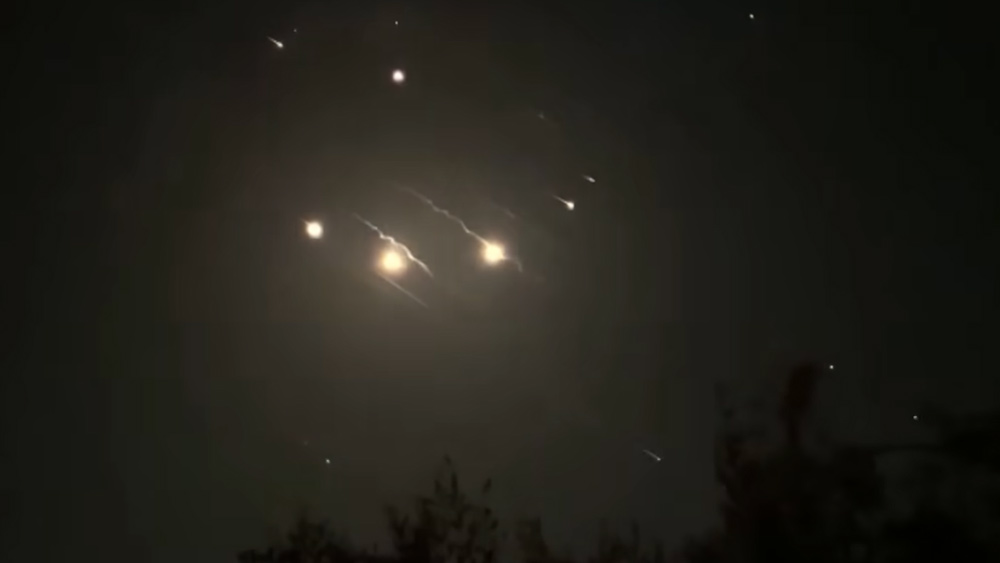Israel and Iran’s all-out war temporarily averted; security minister suggests pursuing stronger Israeli attacks because recent ones were feeble
U.S. intelligence sources have reported that direct strikes between Iran and Israel are over for now. But the measured nature of Israel’s response to Iran’s reported attacks have been poorly received by the hard-right elements of Prime Minister Benjamin Netanyahu’s war cabinet, as Israeli National Security Minister Itamar Ben-Gvir characterized the explosions in Iran as ‘feeble.’
The city of Isfahan in central Iran was struck at 5:00 a.m. local time, with Israel reported to have targeted an air base near the city that also hosts some of Iran’s nuclear research facilities. The strikes came in retaliation for Iran firing a barrage of missiles and drones at Israel last Saturday. Tehran claimed that there was no significant damage to its military facilities. It denied any nuclear plants were destroyed.
Meanwhile, an Iranian senior official has revealed that Tehran has no plan to hit back immediately against Israel after the Jewish state carried out limited strikes inside the country early Friday, a report said. The senior official told Reuters that Iran has no immediate plans to fire back at Israel and that “the foreign source of the incident has not been confirmed.” “We have not received any external attack, and the discussion leans more towards infiltration than attack,” he also claimed.
On the other hand, Netanyahu faces pressure from within his own government to respond more forcefully. Like his national security minister, experts suggested the Israeli PM pursue a more protracted, simmering conflict.
“I think a prolonged but manageable conflict is in Netanyahu’s interest. That can be achieved by extending the conflict with Iran’s Axis of Resistance. This is a low-risk conflict that keeps Israel on high alert without the risk of becoming existential,” Middle Eastern security expert and Kings College London lecturer Dr. Andreas Krieg told MailOnline. “Israel might decide to engage in a series of dispersed attacks over time that are individually so negligible that Iran doesn’t have to respond… a strategy of ‘death by a 1000 cuts,’ which is difficult to deter,” he said.
Human knowledge is under attack! Governments and powerful corporations are using censorship to wipe out humanity’s knowledge base about nutrition, herbs, self-reliance, natural immunity, food production, preparedness and much more. We are preserving human knowledge using AI technology while building the infrastructure of human freedom. Use our decentralized, blockchain-based, uncensorable free speech platform at Brighteon.io. Explore our free, downloadable generative AI tools at Brighteon.AI. Support our efforts to build the infrastructure of human freedom by shopping at HealthRangerStore.com, featuring lab-tested, certified organic, non-GMO foods and nutritional solutions.
Meanwhile, Executive Director of threat intelligence firm Flashpoint Andrew Borene commented that it seems the two nations are now engaged in a very dangerous game of bilateral brinkmanship. “The kinetic strikes by Israel into Iranian territory could have been meant to demonstrate a resolve on Israel’s part to engage with Iran in a tit-for-tat, possibly as a limited demonstration that Israeli precision strike technology can reach into the heart of Iran’s most sensitive military program,” he said.
Isfahan has been home to Iran’s fleet of American-made F-14 Tomcats – purchased before the 1979 Islamic Revolution. The Tasnim news agency also published a video from one of its reporters, who said he was in the southeastern Zerdenjan area of Isfahan, near its “nuclear energy mountain.” The facility also operates three small Chinese-supplied research reactors, as well as handling fuel production and other activities for Iran’s civilian nuclear program.
Moreover, Hossein Amirabdollahian, Iran’s foreign minister told CNN yesterday that Tehran’s initial response to an Israeli strike would be immediate. “If the Israeli regime commits the great error once again our response will be decisive, definitive and regretful for them,” Hossein Amir-Abdollahian said. But officials later appeared to climb down from carrying out retribution. (Related: U.S. to sanction Iran for drone strikes but refuses to sanction Israel for genocide.)
Amirabdollahian jokes: Israeli weapons are toys that our “children play with”
In a separate interview with NBS News, Amirabdollahian refused to acknowledge that Israel was behind the recent attack on his country. “What happened last night was not a strike,” the foreign minister said in told NBC News’ Tom Llamas. “They were more like toys that our children play with and not drones.”
Amirabdollahian, who was attending a U.N. Security Council session, said Iran is not planning to respond unless Israel launched a significant attack. “As long as there is no new adventurism by Israel against our interests, then we are not going to have any new reactions,” he said.
The recent cycle of violence between Israel and Iran began on April 1 when Israel bombed an Iranian consular building in the Syrian capital of Damascus, killing two generals and five officers in the Iranian Revolutionary Guard Corps. Iran responded 12 days later, launching an unprecedented, direct military attack on Israel involving more than 300 missiles and drones. The assault caused no significant damage, however. Nearly all of the missiles and drones were intercepted by Israeli, U.S. and other allied forces.
Head over to WWIII.news for updates on the escalating muti-face war being waged by Israel in the Middle East.
Sources for this article include:
DailyMail.co.uk
FoxNews.com
NBCNews.com
Read full article here




